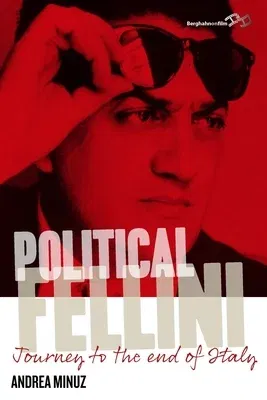Andrea Minuz
(Author)Political Fellini: Journey to the End of ItalyPaperback, 19 February 2018

Qty
1
Turbo
Ships in 2 - 3 days
In Stock
Free Delivery
Cash on Delivery
15 Days
Free Returns
Secure Checkout

Print Length
228 pages
Language
English
Publisher
Berghahn Books
Date Published
19 Feb 2018
ISBN-10
1785338285
ISBN-13
9781785338281
Description
Product Details
Author:
Book Format:
Paperback
Country of Origin:
US
Date Published:
19 February 2018
Dimensions:
22.86 x
15.24 x
1.17 cm
ISBN-10:
1785338285
ISBN-13:
9781785338281
Language:
English
Location:
New York, NY
Pages:
228
Publisher:
Weight:
294.83 gm